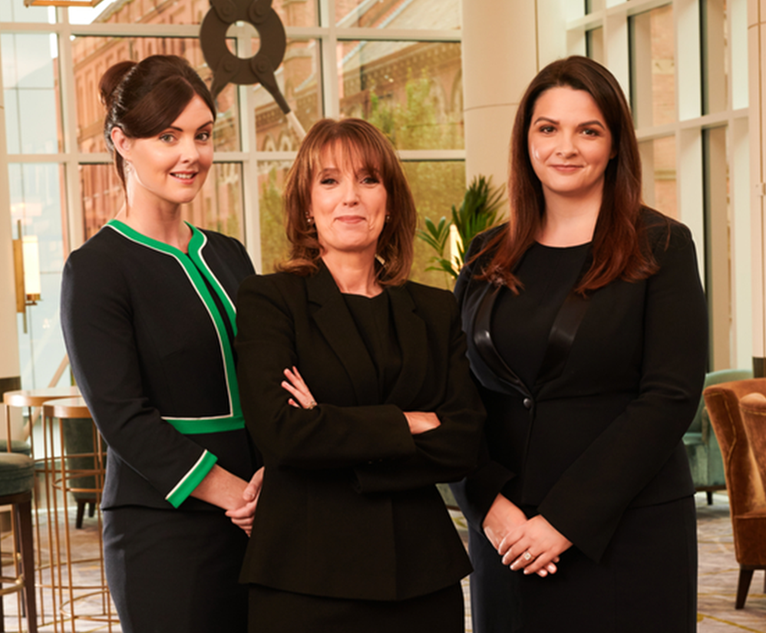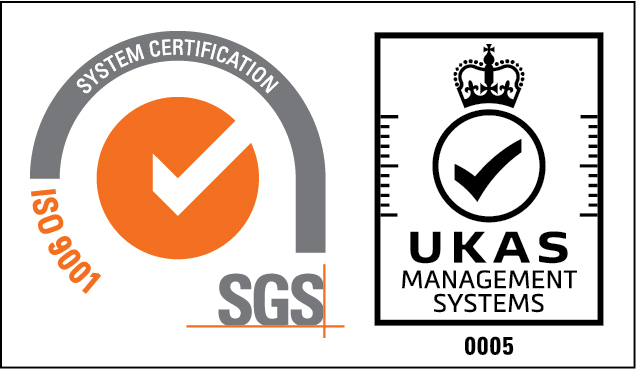Insolvency
Insolvency can be a time of crisis and uncertainty.

A crucial aspect of our daily work at Napiers involves interpreting and applying legislation to urgent cases of financial distress, engaging with banks, lenders and financial institutions as well as providing support and guidance for local businesses endeavouring to manage cashflow and liabilities.
As both Solicitors and Insolvency Practitioners, we have a firm grasp of the contentious issues which arise in this area of practice, the importance of proactive problem solving and the acute need for effective legal representation to ensure fairness and access to justice. Our work often requires making contentious decisions on asset realisations, reporting to stakeholders and the Department of the Economy, developing action plans for case progression, exploring alternative dispute resolution and assessing risk at all stages.
Navigating financial hardship, developing a strategy for debt management or challenging the unfair treatment of creditors is not for the faint hearted or those that dabble in this area of law. Professional, timely advice from an expert is essential.
Why Choose Napiers?
- We are the only firm of Solicitors in Northern Ireland to have two licensed Insolvency Practitioners. This makes us truly exceptional and has shaped our unrivalled expertise in this area.
- With over 35 years of experience in Insolvency, our director, Brigid Napier has been at the forefront of all major developments in this area of practice.
- Our director, Maria Glover is uniquely qualified within Northern Ireland as she is the first and only Solicitor to have obtained her licence as an Insolvency Practitioner since the 1990’s. Working as a Solicitor Insolvency Practitioner gives Maria an edge on her competitors as her work extends beyond the typical advisory role.
- Our senior Solicitor, Gemma Jackson honed her skills working for HM Revenue & Customs and is qualified to practice in both England & Northern Ireland.
- Napiers is synonymous with the practice of insolvency law in Northern Ireland. We provide training to other solicitors, barristers and professionals via the Law Society of Northern Ireland, Queen’s University, Belfast & Chartered Accountants Ireland.
- We act for debtors, creditors, companies, directors as well as other Insolvency Practitioners. This means that we can offer advice from several different perspectives which will help you understand what you are likely to encounter in contentious situations.
- Our solicitors act as advocates for our clients, representing them at Bankruptcy & Companies Court personally on a daily basis.
Key Contacts
Specialist Areas at a Glance
| Personal | Corporate |
|---|---|
| Debtor’s Bankruptcy Petition | Directors’ Winding-up Petition |
| Creditor’s Bankruptcy Petition | Creditor’s Winding-up Petition |
| Post-bankruptcy advice on income and windfalls | Liquidations - Members Voluntary Liquidations (& Creditors Voluntary Liquidations) |
| Bankruptcy Restrictions | Administrations |
| Asset Realisation & Repossession Proceedings including the family home | Strategic advice on the Sale or Purchase of Company Assets subject to an Insolvency process |
| IVA: Individual Voluntary Arrangements (an alternative to bankruptcy) | CVA: Company Voluntary Arrangements |
| Annulments | Litigation arising from pre-insolvency corporate transfers or transactions defrauding creditors |
| Challenges to previous transactions at undervalue, defrauding creditors or Preference Claims | Corporate offences, wrongful trading & fraudulent trading |
We Offer Expert Advice in Insolvency
Speak to one of the team
Contact us to find out more
Contact UsExpert Advice
- Winding-up your business or making yourself Bankrupt;
- Defending a Bankruptcy or Winding-up Petition which has been issued against you;
- Exploring alternatives to bankruptcy if you are struggling with debt;
- Explaining the range of formal or informal insolvency processes available for companies and individuals;
- Protecting your family home from an insolvency process;
- Engaging with creditors such as banks, HM Revenue & Customs, Land & Property Services on behalf of a company or individual in debt;
- Negotiating with a Trustee in Bankruptcy or Liquidator to buy-back assets;
- Challenging procedural unfairness in an insolvency process;
- Applying to the Court to bring an end to a Bankruptcy;
- Administering the estate of a deceased individual if there is not enough money in their estate to pay their debts;
- Overturning previous transactions which have put assets beyond the reach of creditors or has given one creditor an unfair advantage over other creditors;
- Advising directors on potential pitfalls as well as their rights and obligations before, during and after an insolvency process.
Individuals
If you or a family member are facing financial distress or your assets are at risk due to an insolvency process, we can help. We offer a personalised approach in times of financial distress. We have an acute working knowledge of the realities of debt management, the implications of Bankruptcy and the challenges of Insolvency. We recognise that it is vital to ensure that those in financial difficulty have access to a source of rescue and recovery and can avail of the legal mechanisms in place to offer debt relief.
Businesses
Our team works with a diverse range of local businesses and service providers of all sizes, from sole trader firms to family-owned businesses through to complex corporate entities. This includes acting for company directors, business partners, shareholders, employees or suppliers to guide them through the insolvency process and help them enforce their rights and remedies.
Directors
We offer meaningful practical advice to those involved in company management before, during an and after an insolvency process such as a liquidation. This can involve assisting with investigation into the failure of the company, representing a director if they are subject to litigation or face disqualification proceedings.
Insolvency practitioners
Our dual qualification as Solicitors and Insolvency Practitioners, enables us to work with other practitioners to offer legal solutions and support in the administration of an insolvent estate particularly in contentious situations involving court proceedings and the forced sale of assets. This includes acting for other officeholders such as Trustee in Bankruptcies, Supervisors of Individual Voluntary Arrangements, Liquidators & Administrators.
Frequently Asked Questions
-
Is there an alternative to bankruptcy?
Bankruptcy is a statutory process. There are both formal and informal procedures available as alternatives to bankruptcy. The informal processes centre upon agreeing a repayment plan directly with creditors. Such processes can be effective in some cases, but they do not offer the legal protections that are ingrained within the formal processes. The most prominent, legally binding alternative to Bankruptcy is an Individual Voluntary Arrangement (IVA) which is a debt restructuring plan that allows debts to be settled under the supervision of a licensed Insolvency Practitioner with the agreement of the individual’s creditors.
-
Can a family home be repossessed as a part of a bankruptcy?
Yes, repossession is a last resort but unfortunately, the family home is often the core asset in a bankruptcy case. The law provides that once a year has passed since the making of a bankruptcy order, the rights of the creditors are paramount in all but exceptional circumstances. Engaging with the Trustee in Bankruptcy is key to avoiding eviction. We regularly enter into negotiations on behalf of non-bankrupt family members so that we can safeguard the family home.
-
What is a transfer at undervalue?
A transfer at undervalue is a term which appears in the Insolvency (Northern Ireland) Order 1989 to describe a situation whereby an individual or company that is insolvent gives away or transfers one of their assets for less than it is worth. This impacts the amount of money which is available for the creditors that are owed money by the company or individual. The legislation enables such transactions to be scrutinised by the Court and if appropriate, to set aside the transaction to put the parties back in the position that they would have been in if the transfer had not taken place.
-
What is the minimum amount that a company can owe before a creditor can apply to liquidate the company at the High Court?
The Insolvency (Northern Ireland) Order 1989 provides that the minimum amount payable to a creditor before a Winding-Up Petition can be issued is £750.00. However, it should be noted that the cost of Winding-up a company exceed £750.00 and so we work with our clients to carry out a cost/benefit before embarking on any winding-up process.
-
Do directors have personal liability for company debts?
As a general rule, a company is a distinct legal entity and the directors do not have personal liability for the company’s debts. However, a director has a number of statutory duties, and it is possible, that breaching these duties and/or acting recklessly or dishonestly when conducting company business can lead to personal liability. For example, if a director fails to take steps to minimise the potential loss to creditors when they know or ought to know that a company is insolvent, a Court can determine that they must make a contribution to the debts of the company as they have guilty of wrongful trading.
Also, company directors will often be required to sign personal guarantees for company debts. Executing such guarantees means that a creditor can take action against the director if the company fails to pay the debt.
Testimonials
“An environment which embraces and promotes innovative thinking.”
"A genuine sense of a willingness to support, listen and assist.”
“There is a very constructive and engaging culture where people really feel motivated and responsible for delivering on targets and deadlines.”


